Veeniix V11 Pro Drone Review - Far From Pro
 Lukas
Zmejevskis
Lukas
Zmejevskis

Recently, we received a Veeniix V11 Pro drone from Rukotoys for review. As always, I am going to give our honest opinion on it. This will not be an extensive review, but we will look at the core features of this drone and see how it handles and how refined it is. As drones are essentially flying cameras, we will make a few examples of videos and photos to show the quality of the camera.
Hardware
The package comes with two batteries, two sets of replacement propellers, and a couple of USB cables. There is also the drone body and the remote controller, of course. All of this is in a convenient, good-quality carrying case, so you do not need to buy an extra one. Overall, this is not as bad as a complete package.
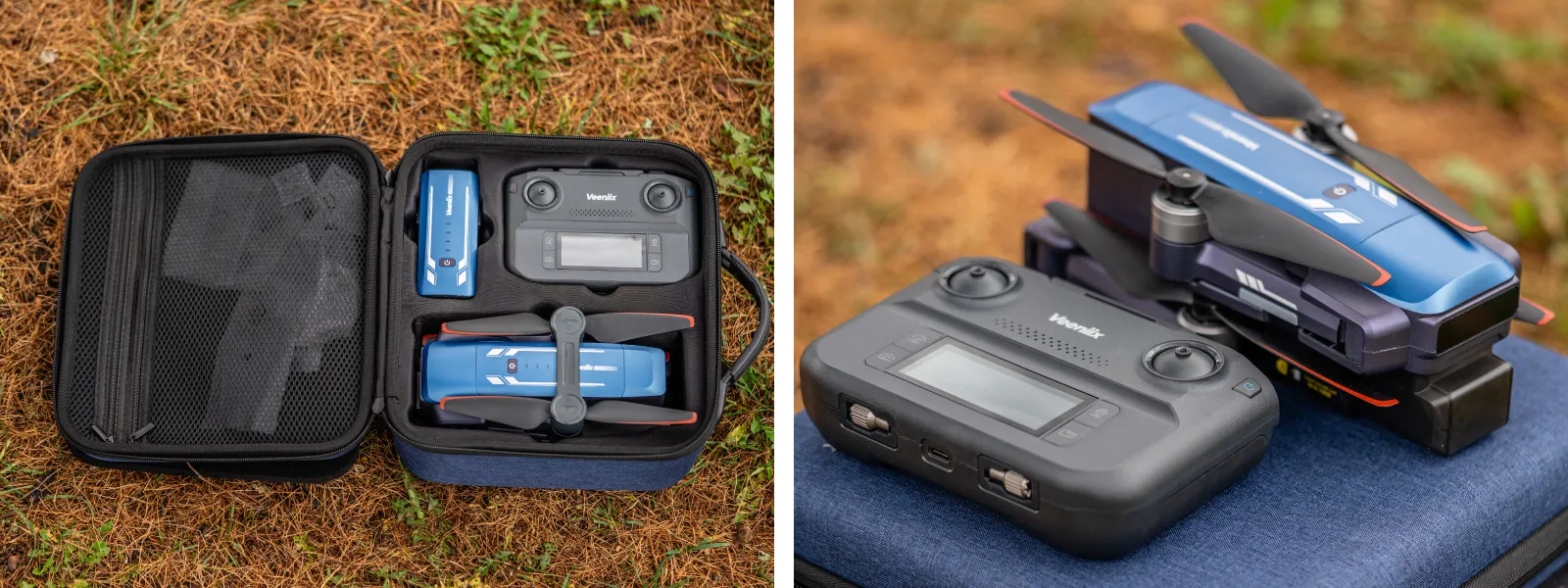 The drone's hardware seems pretty good build quality-wise. It's solidly built, with no creaks in the body, and the plastic looks quite good. The folding legs are simple, not as smooth as those of other more popular drones, but still solid. They fold out and lock with confidence. Again, it's really not a bad showing.
The drone's hardware seems pretty good build quality-wise. It's solidly built, with no creaks in the body, and the plastic looks quite good. The folding legs are simple, not as smooth as those of other more popular drones, but still solid. They fold out and lock with confidence. Again, it's really not a bad showing.
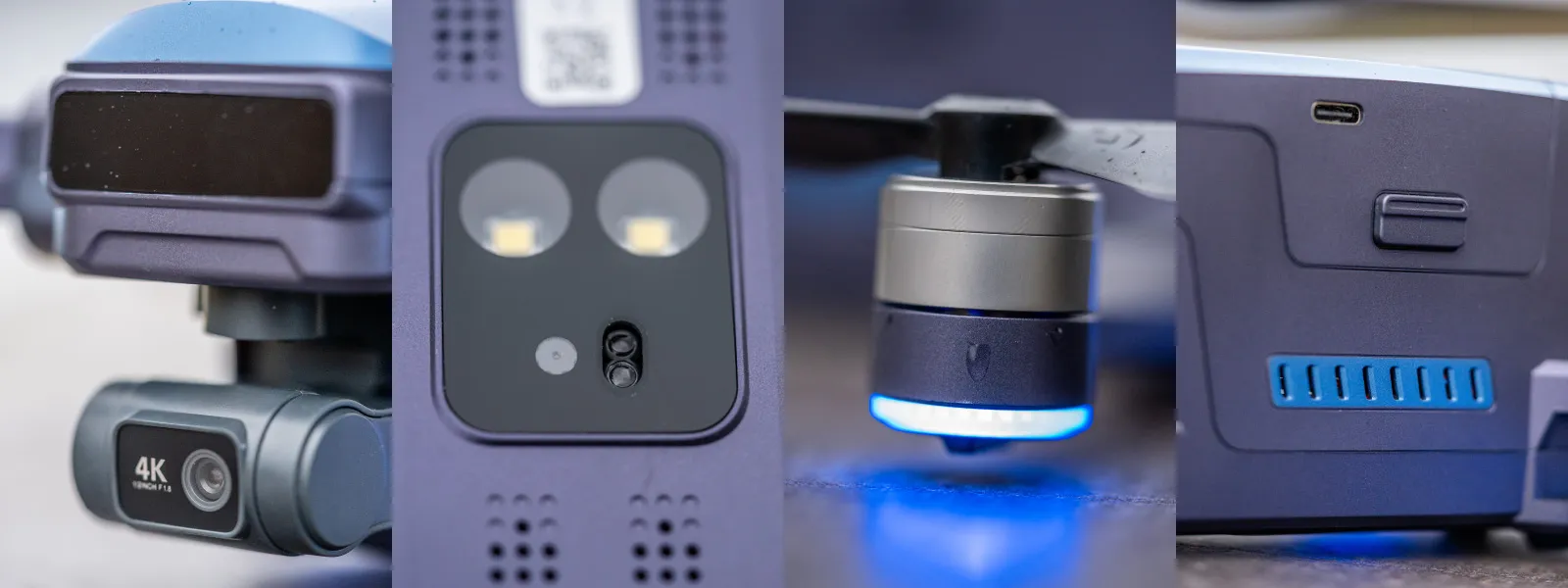 The remote controller is the highlight of this drone. It is built just OK but has the familiar top phone mount factor and a telemetry screen. It is the best of both worlds, having the convenient form factor and a screen like the old Mavic Pro. Sticks also feel OK; nothing is out of place.
The remote controller is the highlight of this drone. It is built just OK but has the familiar top phone mount factor and a telemetry screen. It is the best of both worlds, having the convenient form factor and a screen like the old Mavic Pro. Sticks also feel OK; nothing is out of place.
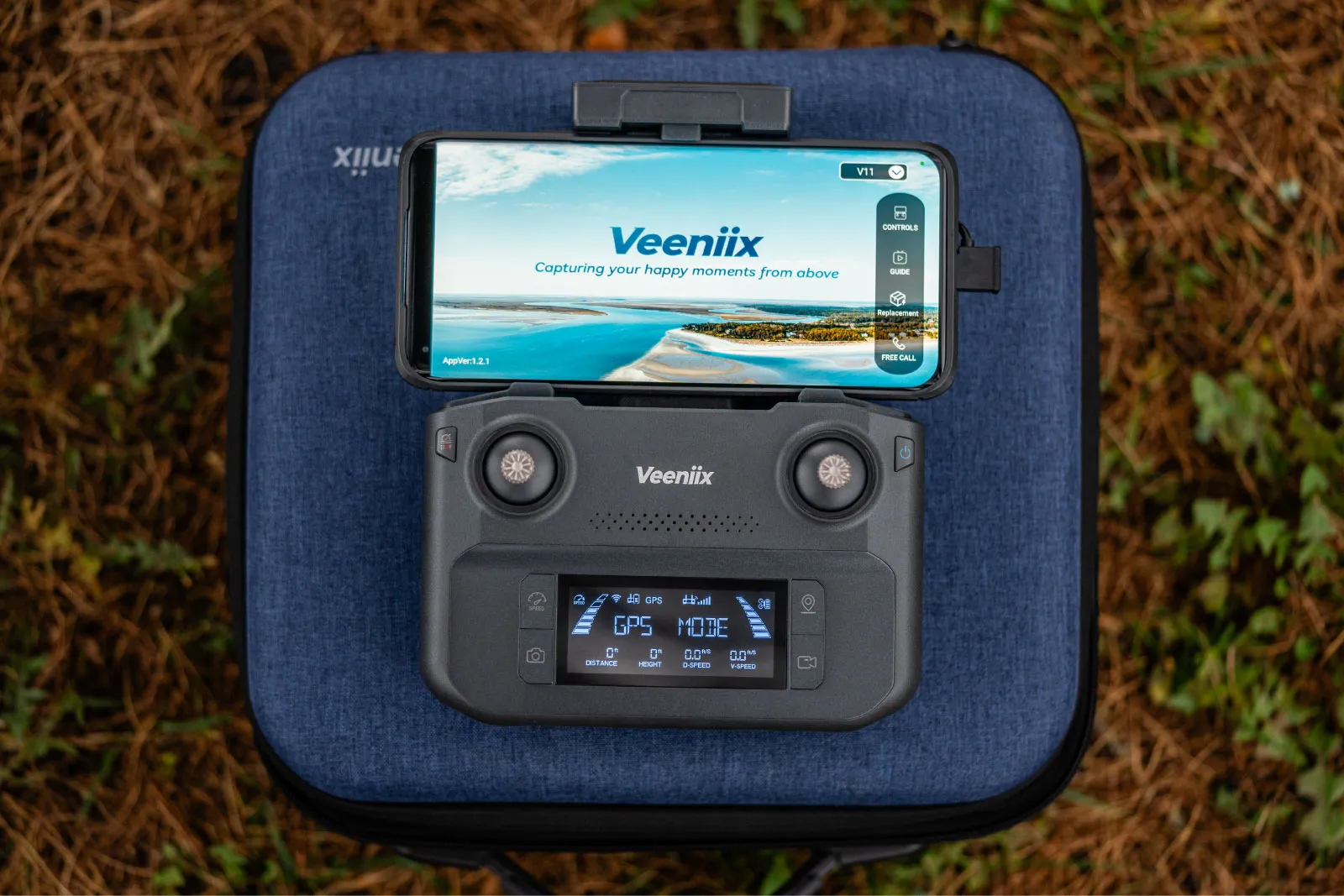 Overall, the hardware is quite good. The unboxing experience is also good. This carrying case is a safe piece of packaging, and there is a good gimbal protector and a propeller protector. Depending on the price, I would be either impressed or satisfied with the hardware I unboxed.
Overall, the hardware is quite good. The unboxing experience is also good. This carrying case is a safe piece of packaging, and there is a good gimbal protector and a propeller protector. Depending on the price, I would be either impressed or satisfied with the hardware I unboxed.
Check out the detailed specs in the official Ruko site here:
https://www.ruko.net/products/veeniix-v11pro
Veeniix Fly App
The software or the app is called Veeniix Fly, and it is passable. But it is only passable in the sense that it works fine; it launches and detects the drone mostly without issues. It is here that we arrive at the main shortcomings of the drone, and it is hard to determine where these are coming from. I think these are software-based shortcomings, so I will discuss them here.
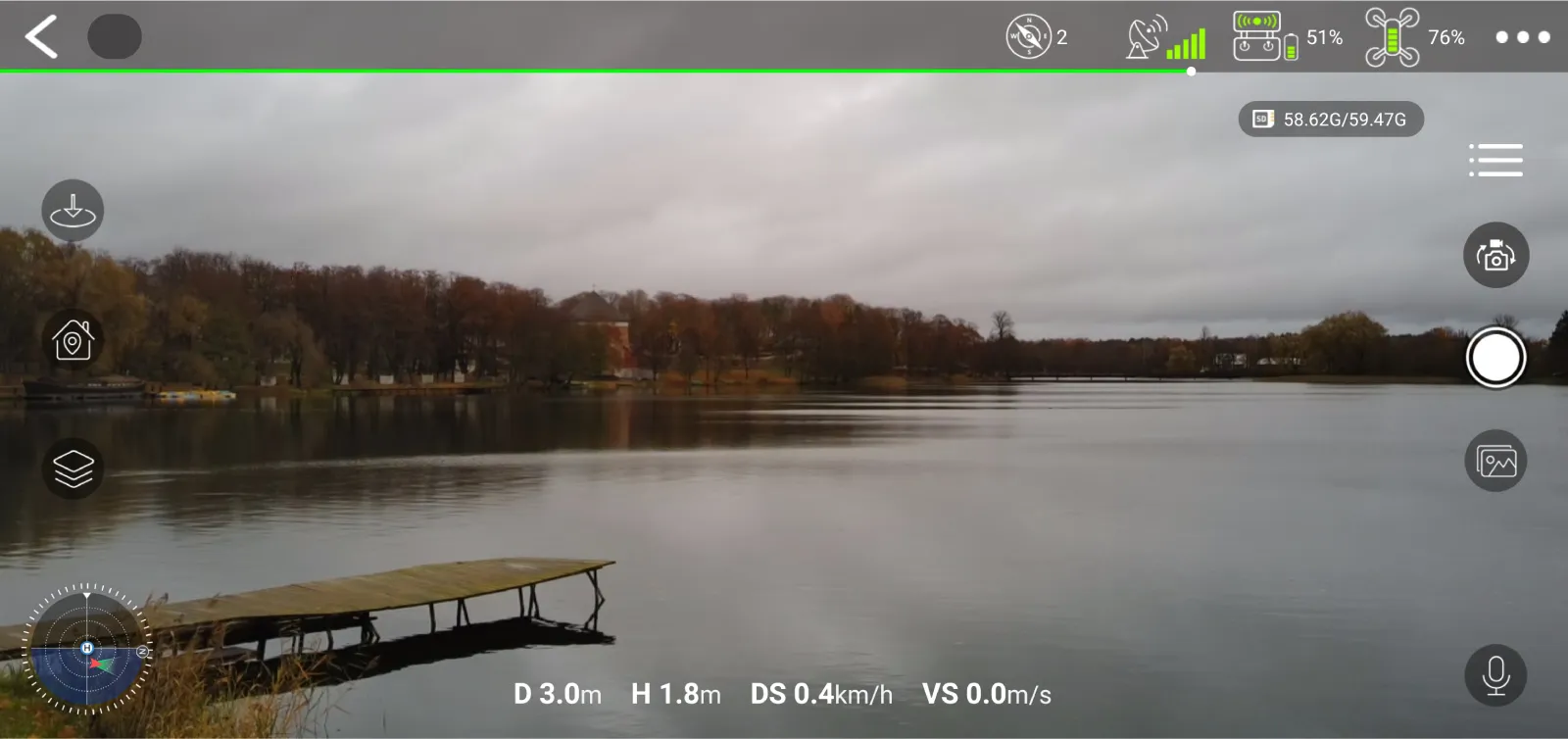 Let us make a list of what is wrong with the app and the resulting user experience:
Let us make a list of what is wrong with the app and the resulting user experience:
The view is always stretched out and heavily cropped in, so what you see is not representative of what photos and videos you will get. This is totally a software issue that needs fixing as soon as possible.
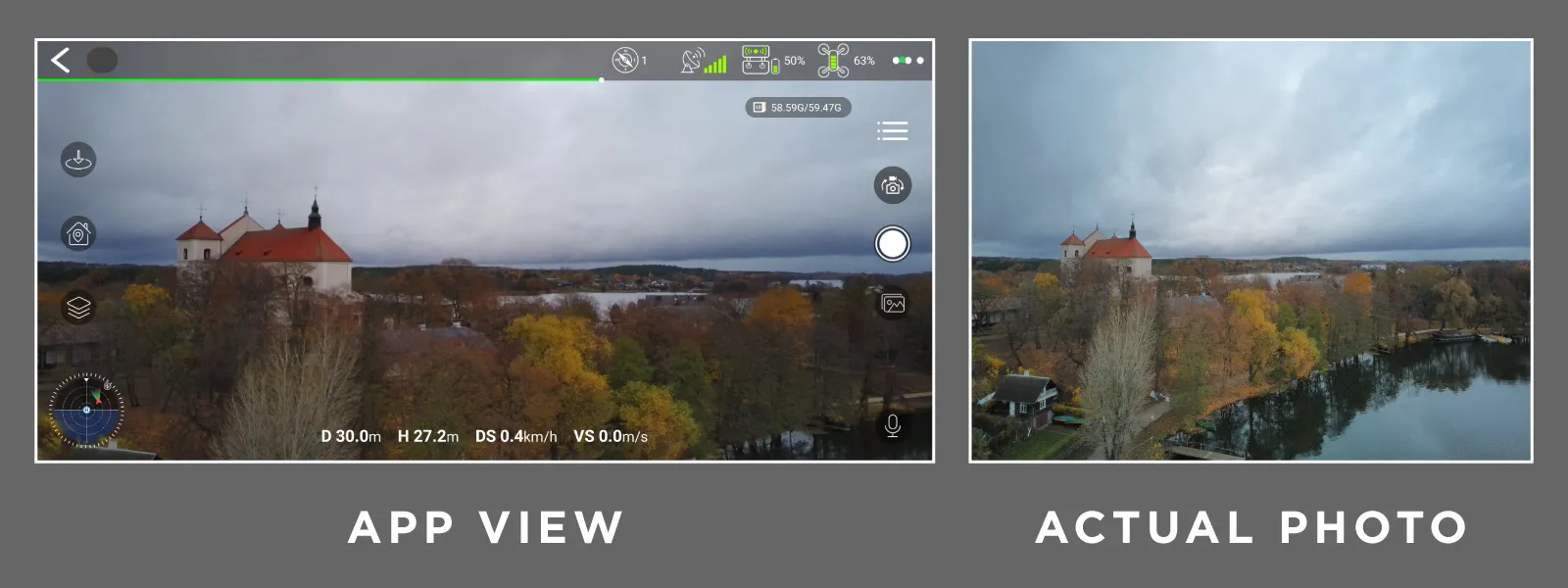 There are no camera exposure settings. Yes, you read that right. You can change the ISO or shutter speed of the camera for either video or photo. Such a baffling omission immediately ruins the "Pro" designation.
There are no camera exposure settings. Yes, you read that right. You can change the ISO or shutter speed of the camera for either video or photo. Such a baffling omission immediately ruins the "Pro" designation.
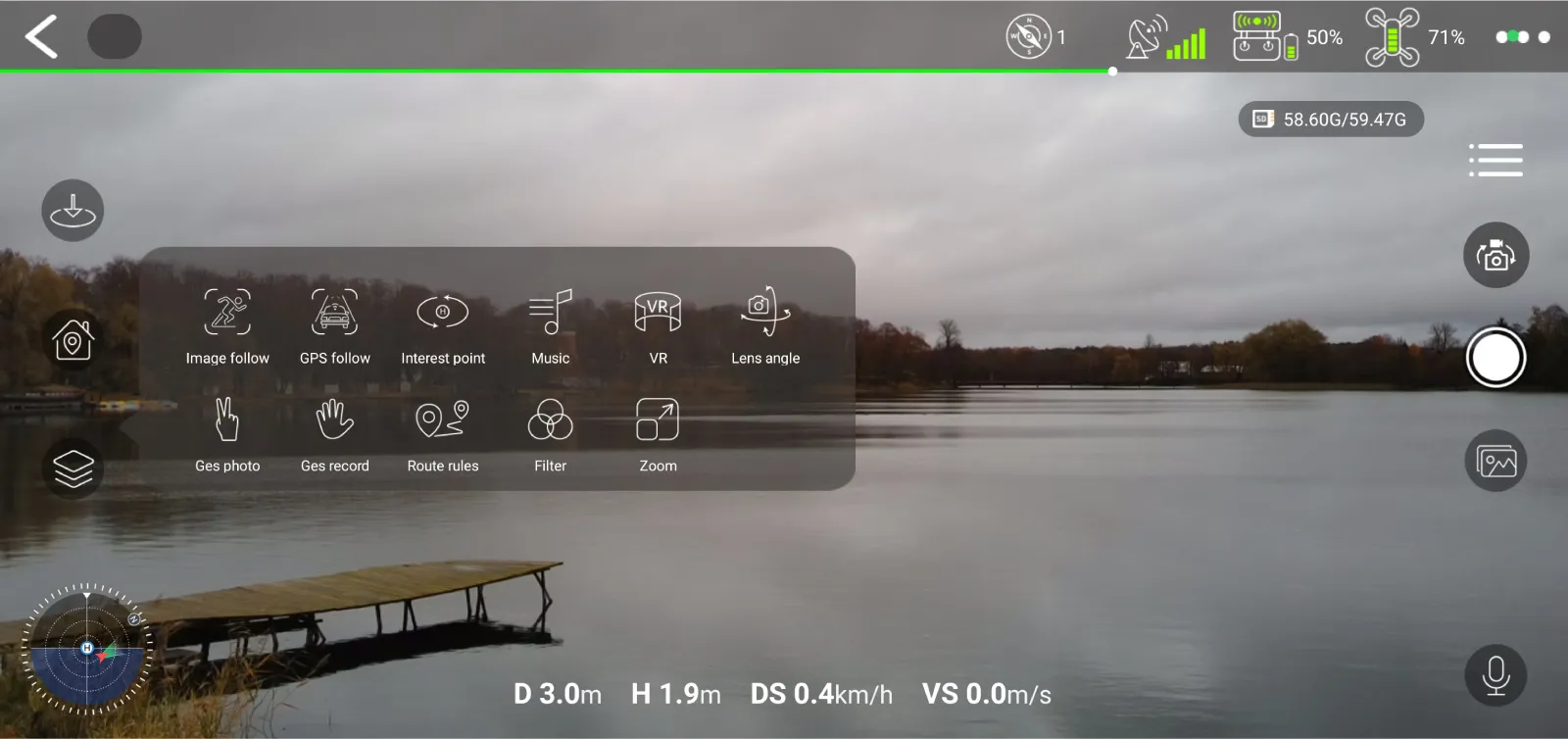 There are barely any settings at all. There are just two "SD card" video resolution and frame rate options—1080 60p and 4k 30p. There are no raw photos, different shooting modes, panorama capture, or anything of the sort we are used to with even the cheapest or oldest good drones.
There are barely any settings at all. There are just two "SD card" video resolution and frame rate options—1080 60p and 4k 30p. There are no raw photos, different shooting modes, panorama capture, or anything of the sort we are used to with even the cheapest or oldest good drones.
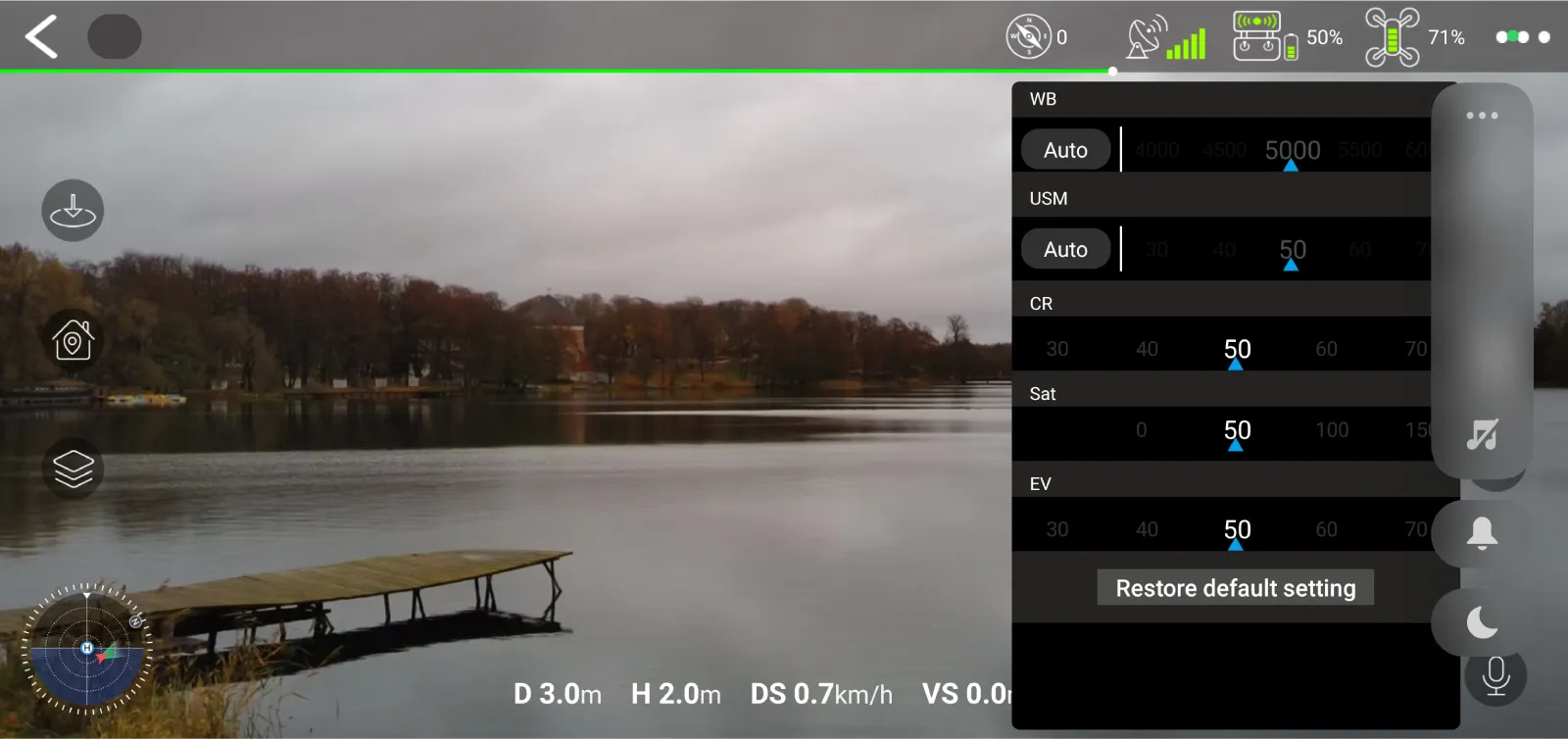 And the worst offender by far - every photo has this timer that takes a few seconds while it says "photo perceiving." Every time you take a shot, this happens as if the drone is downloading a low-resolution preview to your phone. And there is no setting to disable that. No matter what you do, taking a single photo will take at least 4 seconds. Below is a video of the app screen capture where I try the useless digital zoom (more on that later) and take a couple of photos.
And the worst offender by far - every photo has this timer that takes a few seconds while it says "photo perceiving." Every time you take a shot, this happens as if the drone is downloading a low-resolution preview to your phone. And there is no setting to disable that. No matter what you do, taking a single photo will take at least 4 seconds. Below is a video of the app screen capture where I try the useless digital zoom (more on that later) and take a couple of photos.
The software of this drone is not on par with its hardware. We are talking about the app or the drone's firmware. I suspect many of these ridiculous limitations stem from that. Or maybe it is due to a poor onboard processor, which would make it more of a hardware issue.
Flight Experience
Let us talk about flying this drone. There are quirks, but overall, the flight experience is OK. You need to re-calibrate the compass every time you fly, which is good practice in theory but gets really annoying really quickly. Sometimes, just moving a drone prompts the calibration window to open, and then you need to do it again, or you will not be able to take off. Annoying, yes, but not a deal breaker.
A much more critical issue is the general lack of power. It is just too slow and too weak. Changing flight modes does barely anything, and sport mode is the only remotely usable way of flying. The breaking is weak on this drone; no matter in which mode you are, it descends painfully slowly. So flying in windy conditions is out of the question, and it is physically unable to make fast-moving shots. Additionally, it has a long-forgotten behavior reminiscent of older generation drones where it struggles to keep its altitude when flying forward.
 The flight time is good. In the real world, you can get up to 30 minutes of flight from a single battery, and there is no lag with the controls. However, there is a noticeable amount of latency in the video transmission, and the remote controller battery seems to be quite small. According to my tests, it will last two batteries' worth of flight time at most.
The flight time is good. In the real world, you can get up to 30 minutes of flight from a single battery, and there is no lag with the controls. However, there is a noticeable amount of latency in the video transmission, and the remote controller battery seems to be quite small. According to my tests, it will last two batteries' worth of flight time at most.
The drone ascends slowly but is not as bad as the descent. The noise is quite harsh, and the non-folding propellers seem far from optimized. To reiterate, the overall experience is OK with the caveats I described above. I would not call this a current-gen experience, but it did fly.
Camera Quality
This is where this drone ultimately falls apart. Let us get this straight—a drone is a camera that flies—in that order. There is no point in making a drone if you skip the camera part unless it is a cheap toy. This drone has "pro" in its name, and it is not cheap.
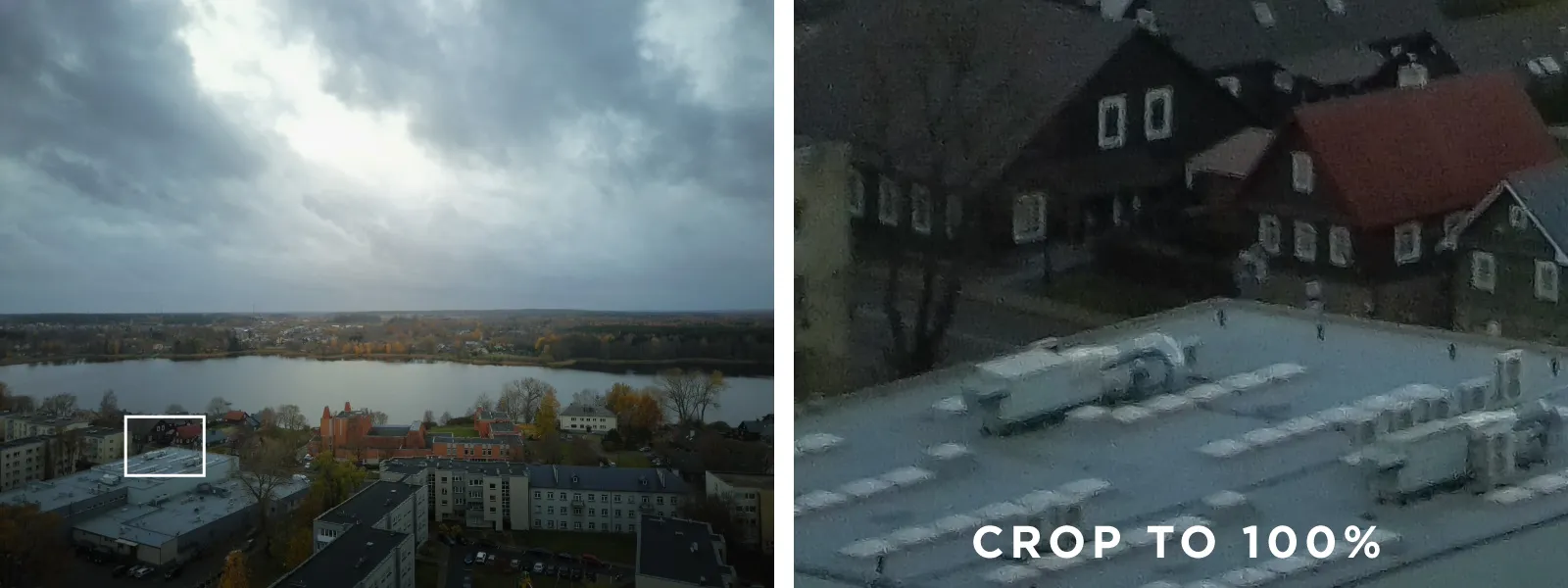 It supposedly has a half-inch 8000x6000 sensor with an f1.8 fixed lens. This size sensor is not very large but should give us decent results with a bright lens in front of it. But in this case, it does not. Image quality is worse than most phones can offer, and file sizes are enormous. Likely, it is a quad-bayer sensor, and someone just did not bother adding a debayering step into the pipeline, so we get 48-megapixel files, which should be 12 but contain at most 3 megapixels of actual detail.
It supposedly has a half-inch 8000x6000 sensor with an f1.8 fixed lens. This size sensor is not very large but should give us decent results with a bright lens in front of it. But in this case, it does not. Image quality is worse than most phones can offer, and file sizes are enormous. Likely, it is a quad-bayer sensor, and someone just did not bother adding a debayering step into the pipeline, so we get 48-megapixel files, which should be 12 but contain at most 3 megapixels of actual detail.
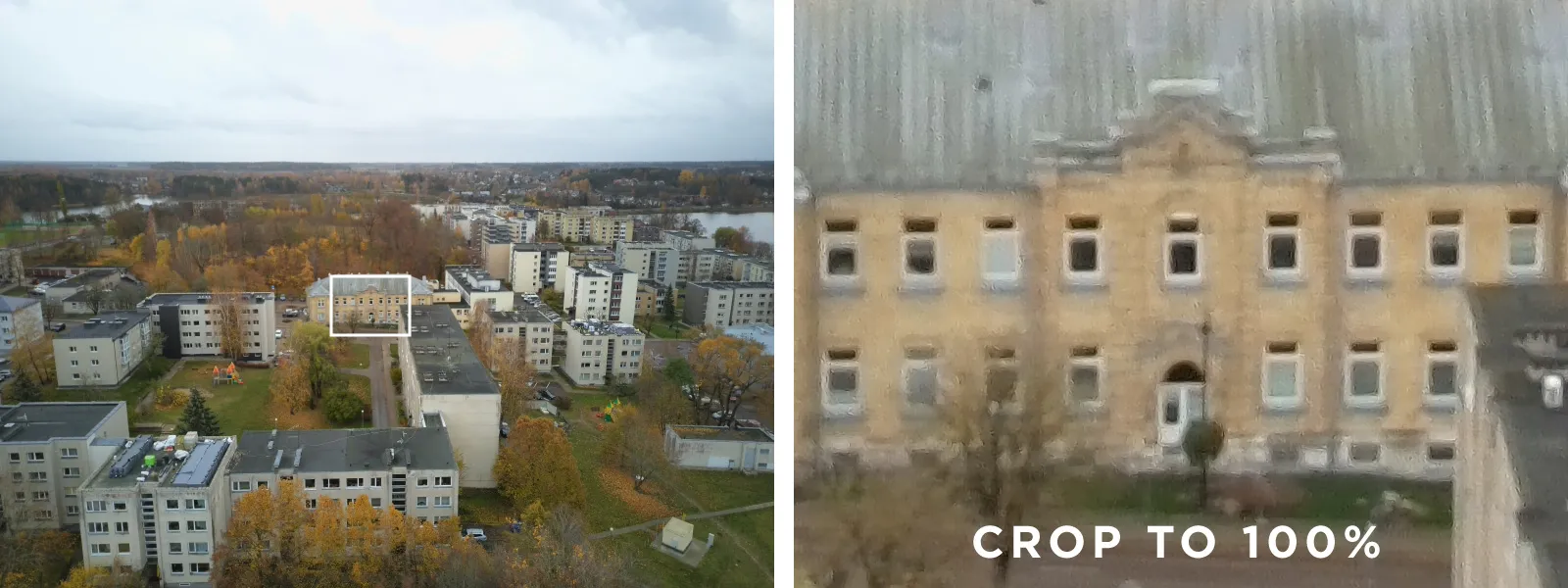 The lens seems improperly focused and misaligned in its fixed state and optically not that sharp. The noise has a weird pattern, probably due to the quad-bayer nature and poor imaging pipeline processing (oversharpened to hell and back with default settings, and not much better with 0 sharpenning which these samples represent). Because we can not even choose exposure settings, we cannot even try to maximize the image quality to set the baseline. Even the so-called "EV" setting in the app does nothing to the exposure, it is just a brightness filter applied to the photo.
The lens seems improperly focused and misaligned in its fixed state and optically not that sharp. The noise has a weird pattern, probably due to the quad-bayer nature and poor imaging pipeline processing (oversharpened to hell and back with default settings, and not much better with 0 sharpenning which these samples represent). Because we can not even choose exposure settings, we cannot even try to maximize the image quality to set the baseline. Even the so-called "EV" setting in the app does nothing to the exposure, it is just a brightness filter applied to the photo.
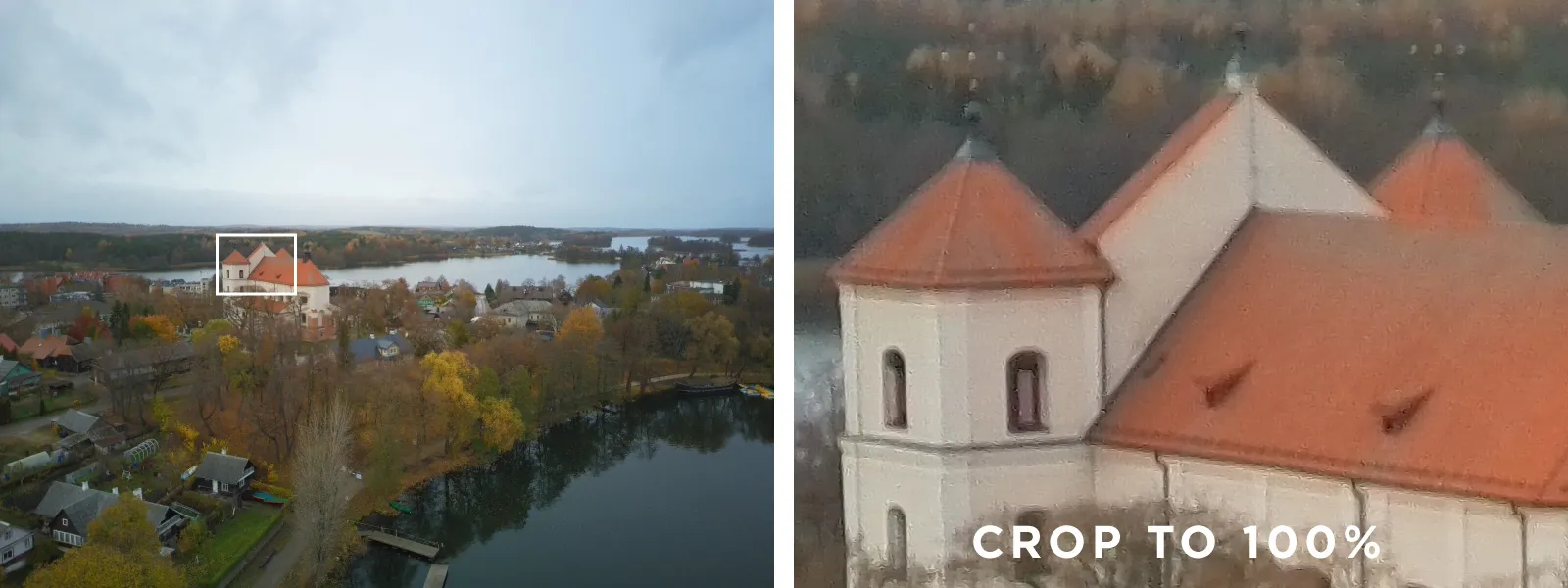 I can not say anything much better about the video, either. It is just a contrasty, poor-quality 3160 by 1920 at 30 frames per second capture. Again, there are no settings and no real color options. The video is cropped in a lot (at least two times), so it is hard to tell what equivalent angle of view we are even looking at. The only redeeming feature of this camera is that it is attached to something that can fly.
I can not say anything much better about the video, either. It is just a contrasty, poor-quality 3160 by 1920 at 30 frames per second capture. Again, there are no settings and no real color options. The video is cropped in a lot (at least two times), so it is hard to tell what equivalent angle of view we are even looking at. The only redeeming feature of this camera is that it is attached to something that can fly.
Additional Comments
The drone has some intelligent flight modes like Image follow or GPS follow and even some sort of waypoint flight. It is excellent that it does, but I do not see the point in testing these when the results do not matter. Video or photo acquired with these modes will be just as unusable as when flying manually.
The camera gimbal is not great. Sometimes, it just loses the horizon level, and you can only land and restart the drone to get it back. No gimbal calibration is available in the app.
The left dial, usually reserved for gimbal angle, is bound to camera zoom, which is useless, while the right one controls the angle. There is no point in having these behaviors like that, and there is no way to remap the dials in the app.
The instruction manual and quick start guide are pretty good. They have colored prints, good English, and detailed descriptions. You can find most of the required information in these. Well done.
Conclusion
This is not a "pro" drone in the slightest. It has suitable hardware, kit, and OK flight dynamics but a poor camera system. This makes this drone not ideal for capturing photos or videos, especially considering what alternatives can offer for that price. Long flight time and good kit push this package towards being a good learner drone for beginners to get the basics of quadcopter flying. Maybe some software updates could bring the drone a notch up. Currently, there are many better alternatives on the market.

Photographer - Drone Pilot - Photogrammetrist. Years of experience in gathering data for photogrammetry projects, client support and consultations, software testing, and working with development and marketing teams. Feel free to contact me via Pixpro Discord or email (l.zmejevskis@pix-pro.com) if you have any questions about our blog.
Related Blog Posts
Our Related Posts
All of our tools and technologies are designed, modified and updated keeping your needs in mind
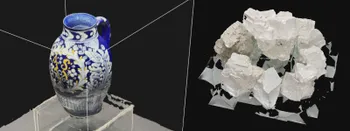
Travel Photogrammetry - More Fun than 2D Photos
Sometimes a 2D photo does not do justice to a moment or a place, and you wish you had something more… dimensional. Something that captures shape, texture, and the little details that flat images tend to flatten even more.
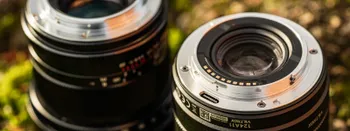
Viltrox 14mm vs. Pergear 14 mm Lens – Choosing for Interior Photogrammetry
Ultrawide-angle lenses are most commonly used in photogrammetry for interior scanning. I am planning to do an interior-type construction site scan, so I need a lens for my Sony full-frame camera. There are plenty of premium wide-angle options, but I need something that provides the best image qualit
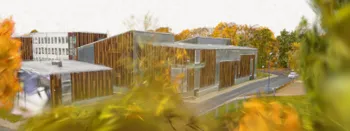
Gaussian Splatting vs. Photogrammetry
Every few years, something new shows up online claiming to “revolutionize” 3D reconstruction. A while back it was NeRFs. Now it is Gaussian splatting — with endless YouTube clips of people walking through photorealistic 3D scenes that seem to render instantly.
Ready to get started with your project?
You can choose from our three different plans or ask for a custom solution where you can process as many photos as you like!
Free 14-day trial. Cancel any time.
.svg@webp)